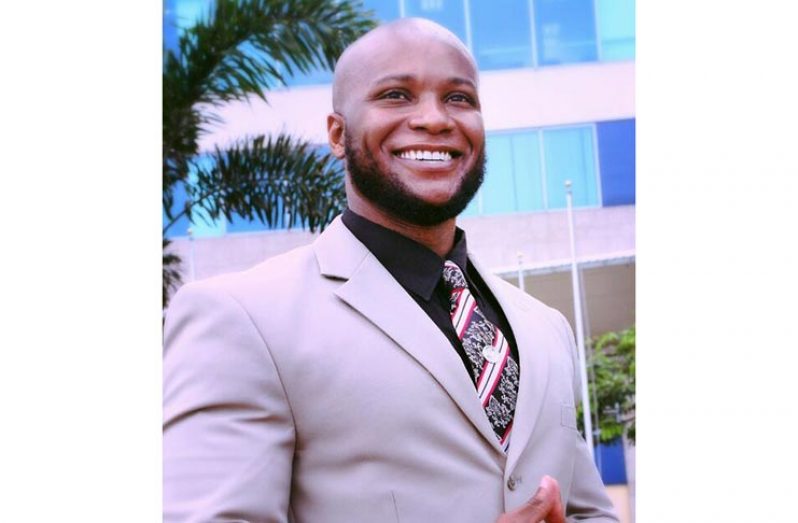PRESIDENT and Co-Founder of the Association of Caribbean Students for Equal Access to the Legal Profession (ACSEAL), Jason Jones, has initiated legal proceedings in the Caribbean Court of Justice (CCJ) against the Council for Legal Education (CLE), the Council for Human and Social Development (COHSOD) and the Council for Trade and Economic Development (COTED).
He is contending that these bodies have infringed his rights, as a national of Trinidad and Tobago, to access vocational training in the Region in order to become an attorney-at-law, eligible to practise within CARICOM member states.
In a statement to the media released Saturday, ACSEAL said that by way of an agreement made among CARICOM member states, pursuant to the Revised Treaty of Chaguaramas (RTC) and further, the Treaty establishing the Council for Legal Education, any CARICOM national can become an attorney-at-law eligible to practise in any member state, after having first obtained a University of the West Indies (UWI) or an equivalent undergraduate law degree and then completed vocational training at one of the regional law schools, for example the Hugh Wooding Law School (HWLS).
“However, since 1996, holders of non-UWI law degrees have consistently been denied equal access to the regional law schools on the basis of an entrance examination fraught with discriminatory practices that seemingly contradict CARICOM’s integration principles such as the acceptance of evidence of qualifications and movement of skilled community nationals. Furthermore, all holders of UWI law degrees are granted automatic exclusive entry to the regional law schools, regardless of their degree classification,” the statement said.
According to ACSEAL, such actions are contrary to the rights intended for CARICOM nationals as provided for in the Revised Treaty of Chaguaramas. Particular reference was made to Articles 35, 36, 37 and 46 of the Revised Treaty. Jones has argued that what he perceives to be infractions are restricting participation in the Caribbean Single Market and Economy (CSME).
“The decision to litigate was not taken lightly,” the association stated. It is important to note that Guyana is moving ahead with the establishment of its own law school to be named the Joseph Oscar Fitzclarence (JOF) Haynes Law School.
Annually, approximately 25 Guyanese law students are accepted and admitted to the Hugh Wooding Law School (HWLS) in Trinidad to complete their Legal Education Certificate (LEC) – a pre-requisite to practise law in the Region. This figure is pale in comparison to the hundreds of students who graduate each year from Trinidad and Jamaica.
Meanwhile, several attempts were made last year to schedule a meeting with the Minister in the Office of the Prime Minister of Trinidad and Tobago Brian Stuart-Young, who had initially promised a meeting in August 2017. The meeting did not materialise. Additionally, local representatives of ACSEAL struggled to have discourse with law representatives of the UWI Student Guild and the Law Association of Trinidad and Tobago (LATT).
Notwithstanding the challenges, ACSEAL’s efforts were redoubled regionally through its chapters in Antigua, Belize, Grenada, Guyana, Jamaica and Montserrat along with alliances in the University of Guyana (UG) and University of Technology (Utech) out of Jamaica.
Additionally, ACSEAL’s national representatives endeavoured to engage with the CARICOM heads of government and the Council for Legal Education (LEC) through CARICOM Secretary-General, Ambassador Irwin LaRocque.
The association said that it was as a result of its alacrity that its representatives were able to participate in the recently concluded ‘Survey of Legal Education in CARICOM member states’. ASCEAL’s participation is deemed testimony that every effort was made to resolve this issue through meaningful dialogue with the various stakeholders, the statement said.
As such, the association thanked Ambassador LaRocque for inviting it to participate in the survey, which notably recommended the abolition of the CLE Entrance Examination; the establishment of the UTech Law School in Jamaica and the creation of law schools in Guyana and Antigua.
Jones, a 2014 UK Commonwealth Scholar Law Student, is being represented by Dr Emir Crowne and Matthew Gayle of New City Chambers, Port-of-Spain, Trinidad.
ACSEAL was established by Jones in March 2016 after he, along with hundreds of other non-UWI law graduates, was denied entry to the HWLS in 2015.
ACSEAL is a regional non-profit, non-partisan student movement advocating for immediate, equitable and sustainable change to the policies regarding legal education, admission to Caribbean law schools and access to the legal profession. The regional student organisation maintains active chapters and student networks in Antigua, Belize, Grenada, Guyana, Jamaica, Montserrat and Trinidad and Tobago.












